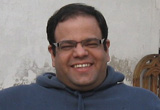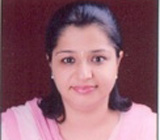
 It has been a winter of discontent regarding the status of women in India, sparked by national outrage following the gruesome gang rape of a young trainee physiotherapist in Delhi. The spontaneous public protests have highlighted the need for reform to promote a gender-equitable society. Today, as we observe International Women’s Day, we also need to critically examine how the health system has responded to the needs of women in India.
It has been a winter of discontent regarding the status of women in India, sparked by national outrage following the gruesome gang rape of a young trainee physiotherapist in Delhi. The spontaneous public protests have highlighted the need for reform to promote a gender-equitable society. Today, as we observe International Women’s Day, we also need to critically examine how the health system has responded to the needs of women in India.
India is an emerging economy and has some of the worst indicators in maternal health in the world, contributing to a quarter of all global maternal deaths. This has led to a programmatic response through the launch of schemes such as the Janani Surakha Yojana, a flagship safe motherhood intervention under the National Rural Health Mission, aimed at promoting institutional deliveries. But merely launching multiple schemes like this is clearly not enough, and gaps exist in implementing existing guidelines and programmes effectively.
Women in India are frequently the last and least likely in the family to access healthcare services. This is due to socio-cultural practices, and the fact that decisions in a family are usually made by a male member of the family. Encumbered by patriarchy, women often only experience an interaction with the health system at two points in their lives: when they are young children and are offered child healthcare (including preventive services such as immunisation), and later when they become pregnant (and are offered ante-natal, pregnancy and post-natal care, or family planning services). This is part of the problem: women’s health is reduced to reproductive health, maternity care, and child care.
Recent data from the Global Burden of Disease study shows that the five major killers in India are high blood pressure, indoor air pollution, tobacco smoking, poor nutrition, and outdoor pollution. While women are at risk of all of these, they are especially susceptible to harm from prolonged exposure to fumes from burning solid fuels indoor for cooking, and poor immunity brought on by a lack of adequate nutrition, compounded by a high prevalence of anaemia. When women suffer from infectious diseases such as tuberculosis, or from cancer, they often access healthcare services late on in their illness.
Mental health is another area with a big gap. India has some of the highest rates of depression and suicide in the world, frequently accentuated by gender-based violence (including sexual violence) towards women, but the health system in India is ill equipped to respond in a sensitive manner to the needs of women in a fragile mental (and physical) state.
It’s clear that policy makers in India need to move from the status quo of providing vertical programmes or interventions for women, to a broad life cycle approach. This will involve sensitive, timely, and free services being made available and accessible to women at all stages of their life—from childhood to old age. As the field of global health revives the ideals of Alma-Ata and explores options to promote universal access to health, healthcare workers need to take a lead in putting the spotlight on women’s health. The recent protests have to some extent served as India’s Arab spring moment—asking for enhanced security and respect for women. But true progress in responding to the needs of Indian women will only happen if it includes demands for promoting a comprehensive approach to women’s health in India.
Anant Bhan is a researcher in bioethics and global health, based in Pune, India.
Bhavna Dhingra is a consultant pediatrician in Pune, India.
Competing Interests: We have read and understood the BMJ Group policy on declaration of interests and have no relevant interests to declare.
